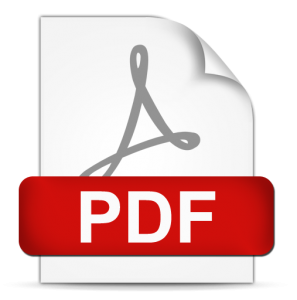Academic English is…
…often considered relatively formal complex English that conveys ideas in a precise and objective manner. It is generally acknowledged to include the essential skills of literary analysis, the observance of reference systems, the synthesis of associated scholars and the ability of critical evaluation. Essential academic vocabulary, phrases and grammatical complexity are often used traditionally in academic dialogue and text. Specifically, Academic English refers to words and practice that are not necessarily common or frequently encountered in informal conversation and circumstances.
Author: Wilson, C (2017) Academic English UK.
Watch this video on the differences between general and academic English
This is a listening worksheet that accompanies the video…
 Academic English: How is it different?
Academic English: How is it different?
What is academic English? This lecture by Cambridge University Press discusses the key differences between Academic English and General English. The listening worksheet has a variety of questions and is great introduction to understanding Academic English . Level ***** [B1/B2/C1] Video [5:20] Example
x
Academic English definitions from the Internet…
‘Academic English’ is the type of English you need for reading and understanding your study materials and writing about your subject. (The Open University, 2017)
Academic writing in English is linear, which means it has one central point or theme with every part contributing to the main line of argument, without digressions or repetitions. Its objective is to inform rather than entertain. As well as this it is in the standard written form of the language. There are ten main features of academic writing that are often discussed. Academic writing is to some extent: complex, formal, objective, explicit, hedged, and responsible. It uses language precisely and accurately. It is also well organised and planned. (UEFAP, 2014)
Academic English is the genre of English used in the world of research, study, teaching and universities. If you read an article in an academic journal or listen to someone giving a presentation or a talk about an academic subject in an academic environment, Academic English is probably being used (English for university, 2016).
Academic English also called English for Academic Purposes (EAP) entails training students, usually in a higher education setting, to use language appropriately for study. It is one of the most common forms of English for specific purposes (Wikipedia, 2017)
Effective Academic English depends on producing the most appropriate style for your purpose and audience. It includes consistency, the right level of formality, expressing ideas precisely, being concise and objective (Manchester University, 2017).
Academic language (American English for Academic English) refers to the oral, written, auditory, and visual language proficiency required to learn effectively in universities and academic programs. i.e., it’s the language used in lectures, seminars, books, and journals. It’s the language that students are expected to learn and achieve fluency in (Education Glossary, 2017).
Academic language is the language needed by students to do the work in universities. It includes, for example, discipline-specific vocabulary, grammar and punctuation, and applications of rhetorical conventions and devices that are typical for a content area (e.g., essays, lab reports, discussions of a controversial issue) (Csun, 2017).
Academic Language is the language needed by students to understand and communicate in the academic disciplines. Academic language includes such things as specialized vocabulary, conventional text structures within a field such essays and lab reports and other language-related activities typical of classrooms, such as expressing disagreement, discussing an issue, or asking for clarification. Academic language includes both productive and receptive modalities (CWU, 2017).
More on what is Academic English?…
Academic Formality
How to write in formal way. Click here
Academic Words
Use academic vocabulary. Click here
Academic Phrases
Use key academic phrases. Click here
Academic Websites
Helpful writing websites. Click here
